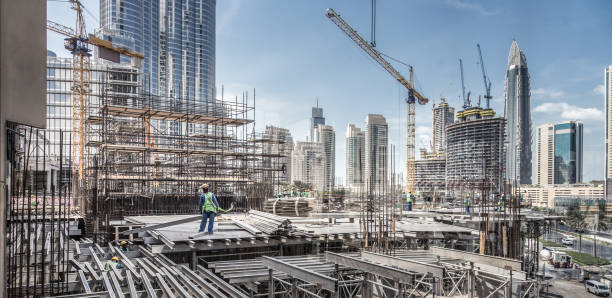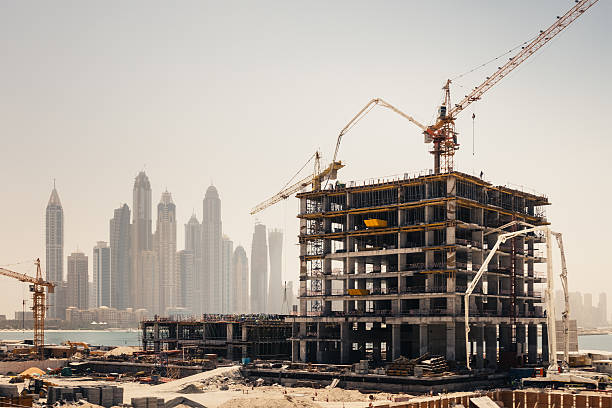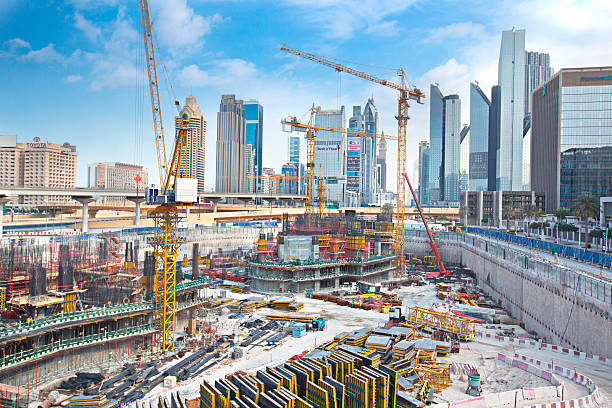When it comes to company setup in Dubai, obtaining an industrial license is an essential step for businesses intending to engage in manufacturing or industrial activities. This article aims to simplify the process by guiding you through the necessary steps to secure an industrial license, ensuring your business is compliant with the regional laws and regulations. Overcoming the barriers to entry in Dubai’s industrial sector means adhering to a specific set of guidelines and submitting the proper documents. Whether you’re a local entrepreneur or an international investor, understanding this process could be the ticket to your company’s success and expansion in this vibrant and dynamic city.
Understanding Industrial Licenses in Dubai
An industrial license in Dubai is a regulatory requirement for businesses that carry out manufacturing or any form of industrial activity. This license allows companies to process raw materials or transform intermediate products into finished goods. To foster business growth and ensure public safety, the Dubai government mandates industrial licensing to oversee and regulate industrial operations within its jurisdiction.
Eligibility Criteria for Obtaining an Industrial License
Not every business can apply for an industrial license in Dubai. To be eligible, your company must engage in activities classified under industrial or manufacturing sectors. There are also prerequisites regarding the scale of operations, and in some cases, a requirement to demonstrate a certain level of technological advancement or sustainability practices. Having a local sponsor or service agent, in addition to meeting investment and manpower criterion, can also be part of the eligibility checklist.

The Step-by-Step Application Process
The journey of securing an industrial license in Dubai begins with obtaining preliminary approvals and consultations. Prospective business owners should engage with the Department of Economic Development (DED) for initial guidance and understand the broader requirements that vary depending on the industrial activity chosen. This step establishes the groundwork for a smooth application process ahead.
Documentation and Paperwork
A crucial part of the application for an industrial license is the submission of relevant documents. Compiled meticulously, these documents include business plans, feasibility studies, and personal identification of shareholders. This paperwork forms the backbone of your application and determines the initial perception authorities will have of your intended business operations.
Here’s a list of documents commonly required for an industrial license application:
- Duly filled application form
- Copy of existing trade license/initial approval from authorities
- Environmental impact study report
- Feasibility study and business plan
- Passport copies of the shareholders and directors
- No Objection Certificate (NOC) from relevant authorities, if applicable
Navigating Legal Requirements
Dubai is known for its stringent adherence to laws and regulations, especially in its industrial sector. Navigating this legal landscape requires thorough understanding and compliance to ensure your business operations do not hit any legal roadblocks. Familiarity with the UAE’s federal and municipal laws can significantly ease the process of obtaining an industrial license.
Environmental Regulations and Safety Standards
The importance Dubai places on environmental conservation and public safety cannot be overstated. All industrial companies must adhere to environmental policies and maintain high safety standards. These include waste management protocols, emission controls, and other measures to minimize industrial impact on the environment. For your convenience, here is a simplified table summarizing some key environmental regulations and safety standards in Dubai:
| Requirement | Description | Authority |
|---|---|---|
| Emission Standards | Limits on industrial emissions into the air | Ministry of Climate Change and Environment |
| Waste Management | Procedures for the safe disposal of industrial waste | Dubai Municipality |
| Safety Measures | Fire safety and workplace hazard prevention | Dubai Civil Defence |
| Resource Conservation | Initiatives to reduce water and energy consumption | Dubai Electricity and Water Authority |
Setting Up Your Business Site
Deciding on the right location for your industrial business in Dubai is pivotal. The city offers various industrial zones and free zones designed specifically for different industrial activities. Each zone provides unique advantages, such as strategic location or specialized facilities. It’s vital to select a location that not only complements your business model but also offers the logistical support your operation requires.
Here are some benefits of different industrial zones in Dubai, to help you make an informed decision:
- Availability of pre-built factories and warehouses
- Proximity to ports and airports for easy logistics
- Connectivity to major highways supporting land transportation
- Incentives offered such as tax exemption and no currency restrictions
- Access to a skilled labor force
- Excellent infrastructure with reliable utilities and services

After Application Submission
Following the acceptance of your application, the relevant authorities will carry out inspections to verify the compliance of your industrial operations with local laws and regulations. Inspectors will visit your facility to ensure that all the infrastructural requirements are met, environmental and safety standards are adhered to, and that there is adherence to the stipulated industry-specific guidelines.
Once the inspection phase is successfully completed and all approvals are granted, your industrial license will be issued. This document serves as a legal permit for you to operate your industrial business in Dubai. It is important to keep this license updated and renew it regularly, as per the guidelines provided by the issuing authority.
Conclusion
In summary, securing an industrial license in Dubai is a process that encapsulates understanding the license itself, meeting the eligibility criteria, gathering necessary documentation, complying with legal requisites, choosing an appropriate site for operation, and following through inspections and approvals. The payoff of this rigorous process is gaining the authority to join the ranks of Dubai’s flourishing industrial sector and leveraging the strategic advantages it offers for your company setup in Dubai.
FAQs
Q1: How long does it take to obtain an industrial license in Dubai?
A1: The timeframe can vary depending on the complexity of the business and the completion of the necessary documentation and approvals. Generally, it can take anywhere from 2 to 6 months.
Q2: Is a local sponsor required to obtain an industrial license in Dubai?
A2: Yes, for a mainland industrial license, a local sponsor (a UAE national or company wholly owned by UAE nationals) is typically required who will hold 51% of the shares in the company, while the expatriate investor holds 49%. However, in free zones, foreign investors can maintain 100% ownership.
Q3: Can I obtain an industrial license if my factory is located outside of Dubai?
A3: An industrial license is generally location-specific. If your factory is outside of Dubai, you will need to apply for a license in the respective Emirate.
Q4: What are the benefits of obtaining an industrial license in a Dubai free zone?
A4: Obtaining an industrial license in a Dubai free zone offers several benefits, including 100% foreign ownership, tax exemptions, no duty on imports and exports, and no currency restrictions, among others.
Q5: Are there any specific industries that are encouraged or discouraged from obtaining an industrial license in Dubai?
A5: Dubai promotes a wide range of industries; however, those that align with the UAE’s strategic vision and contribute to the diversification of the economy are especially encouraged. Industries that may be harmful to the environment or that do not comply with local laws and regulations can be restricted or discouraged.
